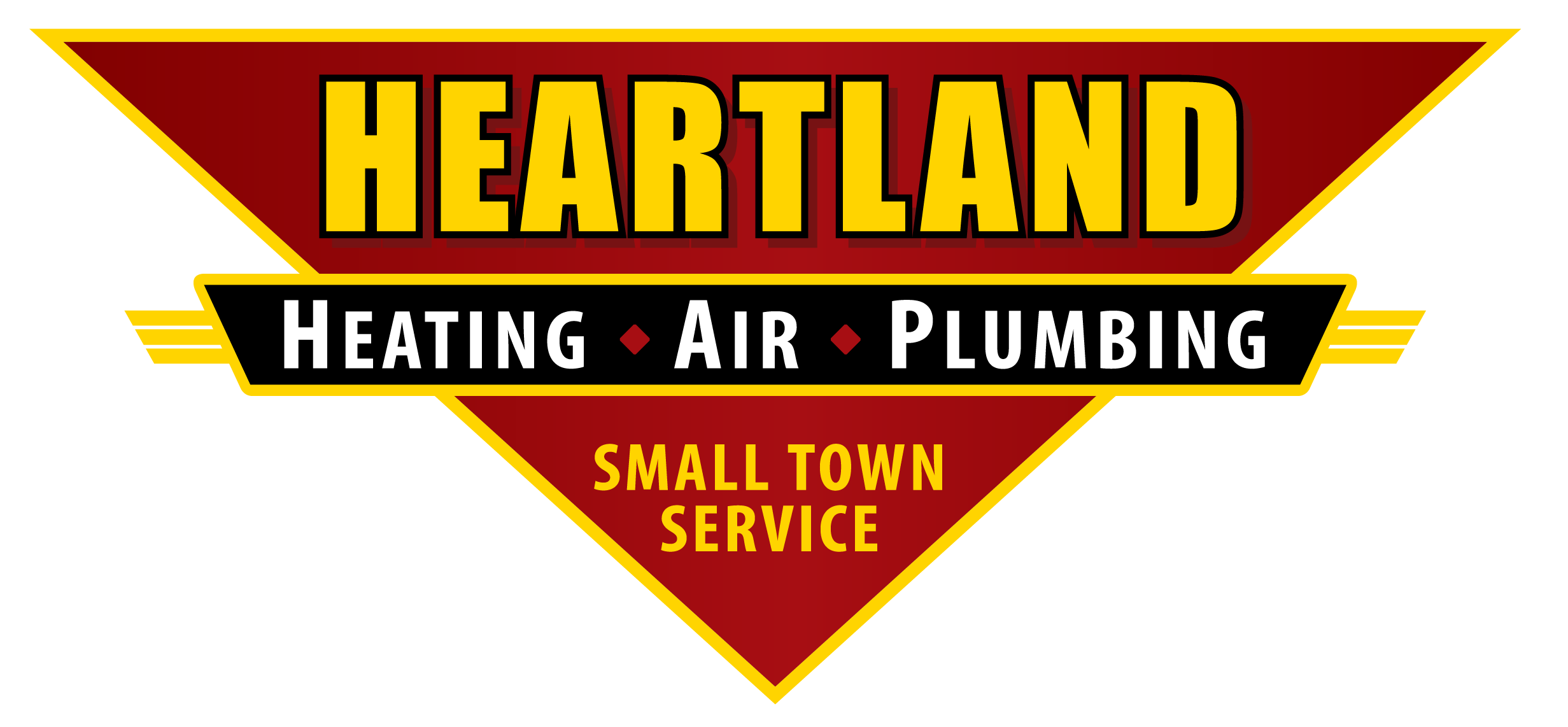Leaky pipes can be a real hassle for homeowners. Like most of us, you’ve probably experienced a drippy faucet or a minor leak from time to time. However, when small leaks go untended for a long time, they can grow into a major problem that can be costly and even damage your home. Heartland Heating, Air, and Plumbing explains how to identify leaking pipes so you know when to take immediate action, as well as what to do with smaller leaks. We will also discuss some of the most common causes of leaky pipes, and offer solutions to prevent them.
Is My Pipe Leak Serious?
Plumbing leaks can happen at any time and should not be ignored. It is important for homeowners to know the signs of a leaking pipe that needs to be addressed as soon as possible. These include:
- A steady stream of water exiting from the pipe
- An abnormally high water bill
- A musty, moldy smell in certain areas
- Unexplained damage to your ceiling, walls, or flooring
- Water pooling near your home’s foundation
If you detect any of these issues, you should take action immediately before the problem can become even worse. Turn off the water in your home at the main shutoff valve and call a plumber for repairs. Through quick response and adequate repair service, you can save yourself from even greater damage to your property down the road. You can trust Heartland to help when you have water leaks with emergency plumbing repairs in the Carbondale and Murphysboro, IL area.
Small pipe leaks around the home can quickly lead to extensive damage and hefty repair bills, too, so it is important to take immediate action if you discover even a small leak. Fixing leaking pipes at home can be relatively simple. It is important to identify the location of the leak prior to making any repairs, which may require turning off the water supply and draining the affected water lines. Many hardware stores sell the appropriate supplies needed for this job such as patch kits, rubber seals, or epoxy putty.
Some patches are as straightforward as wiping away any dirt or debris from around the area and applying sealant generously to both sides of a rubber washer to ensure an adequate seal when tightening down fittings. DIYers who have good plumbing skills may attempt this repair themselves; otherwise, it is always wise to hire a professional plumber who knows exactly what they are doing.
Common Causes of Leaky Pipes
Age and Corrosion
Over time, pipes can corrode or degrade. If your home was built in the 1970s or earlier, it’s likely that the pipes are made of galvanized steel or cast iron. These metal pipes have a lifespan of around 50 years and are one of the most common causes of leaky pipes in older homes. Once they start corroding, it’s only a matter of time before they cause household water leaks. If you have an older home and notice a leak, it’s best to call in a plumber to assess the condition of your pipes. When one pipe starts corroding, there’s a chance that the rest of the pipes are made of the same material and could start corroding soon too. A plumber might recommend repiping services to avoid serious damage in the future.
High Water Pressure
Your home’s plumbing system is designed to handle a certain amount of water pressure. If the pressure exceeds the maximum, it can cause pipes to leak or even burst. This can be caused by a malfunctioning pressure regulator or a faulty valve. It’s important to monitor your water pressure and have a plumber adjust the regulator if necessary.
Clogs
Clogs in your plumbing system can cause a backup of water that can create pressure on your pipes, which is one of the common causes of leaky pipes. This can be caused by flushing inappropriate items down the toilet or pouring grease or other debris down the sink. To prevent clogs, it’s important to be conscious about what you flush down the toilet and never pour grease or other debris down the drain.
Pipes inside your home aren’t the only ones susceptible to leaking. Your sewer line that connects your home to the municipal sewer can be clogged by items that went down the drain or by tree roots. If you have large tree roots in your front yard, it’s a smart idea to have Heartland perform a sewer line inspection.
Extreme Temperatures
Drastic temperature fluctuations can cause pipes to expand and contract, leading to leaks. This often happens in colder weather, when the water in the pipes freezes and expands, causing them to burst. Southern Illinois is no stranger to rapid temperature shifts during the year. To prevent burst pipes, it’s important to insulate your pipes in colder months.
Damaged Pipe Joints and Broken Seals
To connect two pipes together, plumbers use pipe joints to direct water flow around corners. These joints can degrade over time too, and it’s common to see leaking pipes at these joints. To connect pipes to water fixtures, seals are installed to make sure no water escapes. Seals are used in faucets, toilets, and drains to keep the water in the pipes. When a seal fails, it can quickly lead to disaster. Depending on the seal, it can be sometimes easy to fix, or it may require replacing the entire fixture.
Plumbing Leak Repair in Murphysboro, IL
Leaky pipes can be a nuisance at best and a nightmare at worst. By understanding the common causes of leaky pipes and taking preventative measures, you can avoid serious problems down the road. If you notice any signs of a leak in your home, don’t wait until it’s too late. Contact a professional plumber immediately to assess the situation and prevent further damage. And if you’re in need of plumbing repair in Murphysboro, IL, call Heartland Heating, Air, and Plumbing day or night for emergency plumbing services.

